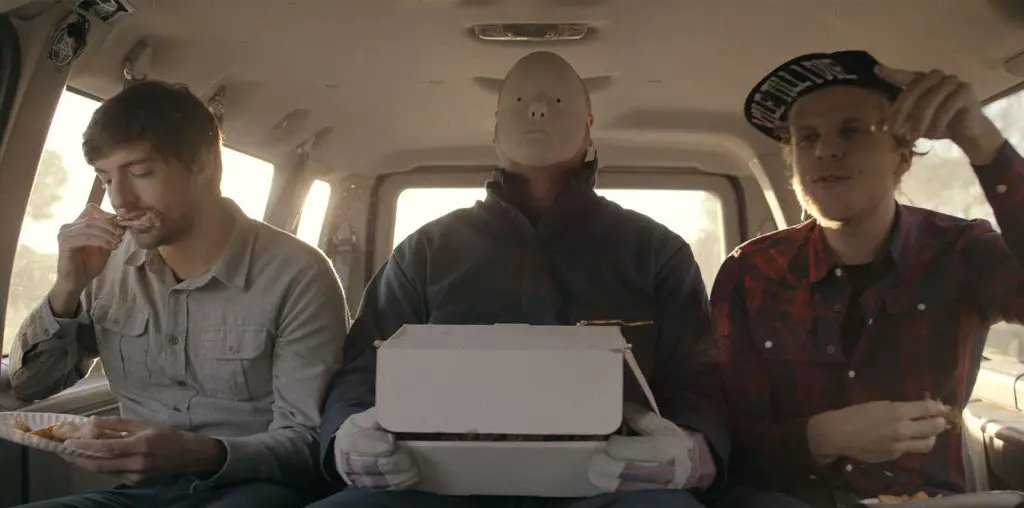
In the mood for love? Sure, just don’t expect director Wong Kar-Wai to be in the mood for either plot or action. Now, some of you may not be all that well versed in Hong Kong Cinema. The former British colony has been the savior of American action films, particularly during the last three years as the influences and personnel have taken hold in films like “Charlie’s Angels” and “The Matrix.” However, the local Chinese market is fairly meat-and-potatoes in their taste, so HK cinema isn’t known for a wide array of art films. Even “Crouching Tiger, Hidden Dragon” has had, at best, a mixed reaction in China for being too “arty.” However, if one guy is the designated “artist” of Hong Kong directors, it would have to be Wong Kar-Wai.
If you’re not familiar with his movies, they tend do be different for a very specific reason. His clout and stature have allowed him to start production on most of his films, including his newest one, without a script. What he tends to do is start out with some ideas, a specific setting, and specific characters and relationships for his chosen actors. Then through improvisation and exploration Wong, his cast and world-class director of photography Christopher Doyle attempt to develop a story that can hopefully be constructed in editing.
With “In the Mood for Love,” the setting is Hong Kong, 1962. Two people, Chow Mo-Wan (Tony Leung Chiu Wai) and Su Li-Zhen (Maggie Cheung), move into rooms in neighboring apartments on the same day. Each is married, but not to each other. Due to their jobs, their spouses are not present at the moving and are rarely glimpsed throughout the film. Slowly, Chow and Li-Zhen realize that their spouses are actually having affairs with each other. The rest of the film is about how, despite their obvious chemistry, the jilted pair are able or fail to connect with each other. It’s a fairly chaste film. What little physical contact the two share is highly charged, but many of their encounters are recontextualized for the audience part way through the scene as you realize that they often role-play as their mutual mates as they imagine how the absent couple spends their time when together.
Despite whatever kind of buzz this film has received, keep in mind that everyone has to judge for themselves whether Wong Kar-Wai’s little experiments work for them. I can appreciate what he’s trying to do, but most of his films just don’t work for me. I do believe that his last feature, “Happy Together,” completely worked and is a masterpiece. The problem I find with the approach is that while the director is improvisational with content, he’s got a fatal flaw concerning sticking to the traditional model of making movies: pre-production (preparation), production (shooting), post-production (editing). Unless you allow for the option to go back for re-shoots, you could enter the editing process and find you have everything you need, or NOT. A little more leeway to go back and forth between shooting, writing and editing would allow the story to develop in the most organic manner. What too often seems to happen is that the director has to rely on voice-overs and title cards to fill in the holes. The biggest problem is that his approach may not produce a satisfactory ending, as with this film.
When you don’t know exactly what the story is going to be while in production, the greatest difficulty will always be to know when you’re actually done. While “In the Mood for Love” is highly-charged for much of its running time, it unfortunately just peters out in a way that satisfies neither the characters nor the audience. Oh, well.
[ HOWEVER ] , there is one highly redeeming factor here, and possibly the greatest incentive for the whole project. IT’S THE CLOTHES, MAN. I just haven’t seen this much early 1960s hipster wear since “Crime Story” went off the air. Tony Leung never seems to be out of suit that would still be styling in Vegas, and Maggie Cheung is sporting a stunning, form-fitting wardrobe that is obviously far beyond what her character could ever afford. Dressed like that all the time, I don’t know how anyone could not fall in love with her. You just can’t help but to be in the mood for love. Too bad the director wasn’t in the mood for a decent ending.
